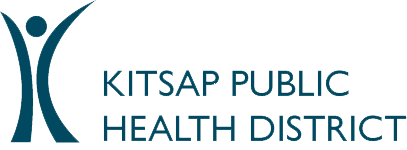
Treatment of Uncomplicated Gonococcal Infections of the Cervix, Urethra, Pharynx, and Rectum
Recommended treatment regimen is dual therapy with Ceftriaxone 250 mg IM in a single dose plus Azithromycin 1 gm p.o. in a single dose.
- Doxycycline is no longer recommended for use in conjunction with Ceftriaxone to treat gonorrhea.
- If Ceftriaxone is not available, Cefixime 400 mg p.o. plus Azithromycin 1 gm p.o. remains an acceptable but lesser alternative. A test of cure at the infected site should be conducted 10–14 days after treatment.
- If pharyngeal gonococcal infection is diagnosed, Ceftriaxone must be used rather than Cefixime.
- Systematic unavailability of Ceftriaxone in a clinical setting should be corrected rather than continuing routine use of Cefixime.
- Epididymitis, proctitis, and pelvic inflammatory disease (PID):
- Doxycycline 100 mg p.o. bid x 14 days (rather than Azithromycin) remains the recommended complement to Ceftriaxone in outpatient treatment for epididymitis, proctitis and pelvic inflammatory disease (PID).
- A third agent, Metronidazole 500 mg p.o. bid x 14 days, should accompany Ceftriaxone and Doxycycline in the outpatient treatment of PID.
Expedited Partner Therapy (EPT)
EPT (or Patient Delivered Partner Therapy (PDPT)) should be routinely offered to heterosexual patients with Chlamydia or Gonorrhea infection when the provider cannot confidently ensure that all of a patient’s sex partners from the prior 60 days will be treated.
- Clinicians should understand that responsibility for ensuring the treatment of partners of persons with STDs other than Syphilis and HIV rests with the diagnosing provider and the patient.
- If the patient has not had sex in the 60 days before diagnosis, providers should attempt to treat a patient’s most recent sex partner.
- EPT should not be used with patients who are men who have sex with men (MSM).
Men who have Sex with Men (MSM)
All MSM should be tested at least annually or every 3 months if at high risk for HIV, Syphilis, Chlamydia, and Gonorrhea.
- An association exists between acute bacterial STDs and primary HIV infection.
- MSM being tested and/or treated for Syphilis, Chlamydia, and/or Gonorrhea should be offered an HIV test at the same time.
- MSM should be tested for Chlamydia and Gonorrhea at all sites used for sex (urethral, pharyngeal, and/or rectal).
HIV Pre-Exposure Prophylaxis (PrEP)
Patients at high risk for HIV infection should be offered HIV PrEP.
- HIV PrEP is recommended for:
- HIV-negative MSM at high risk of HIV exposure (e.g., recent bacterial STD).
- HIV-negative partners in a serodiscordant relationship.
- PrEP should be accompanied by non-pharmacologic risk reduction methods as well (e.g., reduce number of partners, consistent and correct condom use).
- For additional information on prescribing PrEP:
For the full treatment guidelines: CDC MMWR Sexually Transmitted Diseases Treatment Guidelines, 2015
Additional STD Treatment Guidelines resources and materials are available from CDC.
